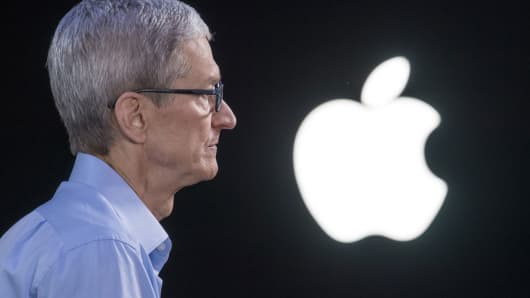Apple has to get over its privacy hang-ups and launch better services
Apple announced recently that it had hired two big Sony TV executives to head up Apple’s original video strategy. It’s the strongest signal yet that Apple has grand plans to offer its own slate of original video content to compete with the likes of Netflix, Amazon and HBO.
Yet as Apple brings more high-quality content to its users, it’s likely to highlight a growing dilemma: Is it going to start offering better services to users with less privacy, or continue offering inferior services with strong privacy?
On Ben Thompson’s Exponent podcast from two weeks back — “Fruitful Clapping” — he discusses how Siri stops using your utterances/voice queries after 6 months (based on this Wall Street Journal article). That’s problematic to improve Siri’s algorithm. You can’t compare utterances today to utterances a year ago.
Google or Amazon would never do that. Why does Apple? It’s supposed to be for enhanced user privacy.
Here’s a Tim Cook 2015 speech on privacy:
“We believe the customer should be in control of their own information. You might like these so-called free services, but we don’t think they’re worth having your email, your search history and now even your family photos data mined and sold off for God knows what advertising purpose. And we think some day, customers will see this for what it is.”
It sounds great — in theory. But the rubber meets the road when you start interacting daily with your favorite services.
Spotify knows what music you like better than you do.
Apple Music gives you the world but doesn’t have that same magical insight into you — but you have better privacy.
Google Photos organizes my photos magically in the background. It delights me that it’s somehow able to recognize my child from ages one to 15 as the same person through facial recognition software. It now has 500 million monthly active users — presumably many on iOS.
Apple’s Photos app makes me tag hundreds of photos of the same person to group them instead of recognizing them. The reason is Apple is doing facial recognition on the device instead of in the server.
The lead that Google has is only going to get greater. You, the Apple user, won’t have as good an experience — but you have better privacy.
Netflix offers up personalization of your video interests. That’s been part of their DNA since the company was founded in the ’90s as a website: Netflix.com.
Apple’s yet-to-be offered streaming video service with great content from the two hotshot new ex-Sony TV executives will likely have no such personalization. You’ll probably see a top 10 list instead — but you’ll have better privacy.
Do Apple users want better privacy or better services? Consumers are voting every day with the apps they click on and use. Facebook, Snapchat, Instagram. If it’s a choice between convenience and delighting users with smarter services versus privacy, we’ll go with the former all day long.
Apple thinks it is doing this in the name of user privacy, but — as Ben Thompson asked on his pod — what happens if users move over to Google and Amazon? Are the privacy concerns of Apple users now being best served if they’ve outsourced privacy to their competitors?
Apple users deserve better services. Users are willing to give up privacy if they trust you and believe they’ll get better services from you.
It’s time for Tim Cook to embrace better services once and for all. That means more machine learning, more algorithms, more cloud-based power.
The argument that Apple will never be good at services because it never has been is baseless. If that were true, Apple would never get into original content. It would never make an acquisition more than $400 million. It would never have launched iCloud. It would never have opened an Apple store.
Apple needs to go where its users want it to go. If it doesn’t get serious about Siri and learning what its users want, it will continue to fall further and further behind Google and Amazon in the same
[Source”indianexpress”]
